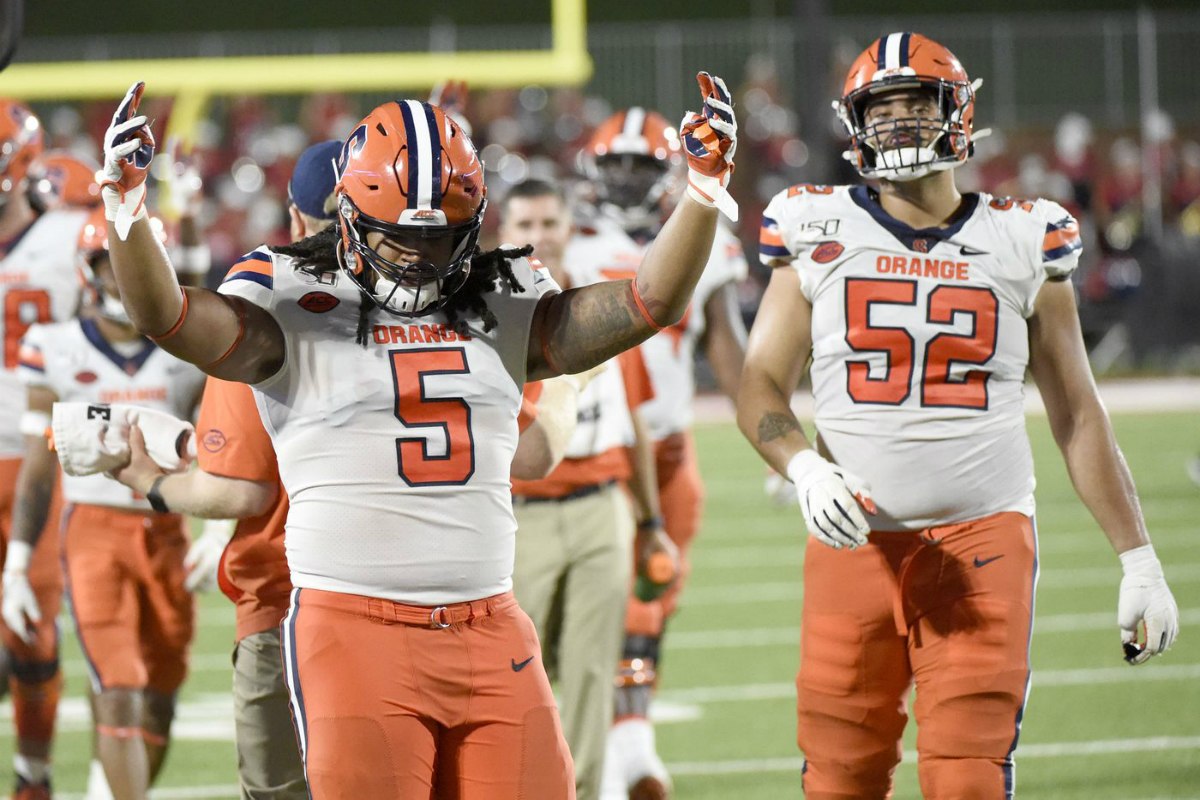New York Bill to Pay College Athletes Introduced, Could Help Ease NCAA Sports Betting Integrity Concerns
Posted on: September 19, 2019, 10:04h.
Last updated on: September 19, 2019, 10:55h.
Legislation to pay college athletes in New York state has been introduced, and proponents say such a financial arrangement could help ease the National Collegiate Athletic Association’s (NCAA) integrity concerns when it comes to the expansion of sports betting.

State Sen. Kevin Parker (D-Brooklyn) introduced S6722, the New York Collegiate Athletic Participation Compensation Act. The legislation that would require college athletic departments to share 15 percent of their annual revenue with their student-athletes.
It’s about equity,” Parker told ESPN. “These young people are adding their skill, talent and labor to these universities. You don’t need the shortcuts and the end-arounds, because now we’re providing some real support for these student-athletes.”
Parker’s bill resembles the California Fair Pay to Play Act, which has passed the state legislature and is on Gov. Gavin Newsome’s (D) desk for consideration. The legislation would make it illegal for California universities to strip an athlete’s scholarship or eligibility if he or she was found to have accepted endorsement money.
Sports Betting Impact
New York is one of 13 states that have legalized operational sports betting. The US Supreme Court struck down the federal ban in May 2018, which returned governing power for gambling activity back to the states.
The NCAA fought hard against New Jersey’s legal challenge, but ultimately lost. Association President Mark Emmert has repeatedly voiced concerns that widespread sports betting jeopardizes the integrity of collegiate sports.
The NCAA has unsuccessfully fought for a federal framework states must opt into, as well as integrity fees – small percentages sportsbooks would be required to share with the leagues who help generate the revenue.
Despite Major League Baseball (MLB), the National Basketball Assn. (NBA) and National Hockey League (NHL) – and to some degree even the National Football League (NFL) – embracing sports betting, Emmert hasn’t altered his position. In April, the NCAA boss said the paramount goal is to make sure student-athletes aren’t gambling on sports.
“The membership wants a prohibition of athletes gambling in any sports, period,” Emmert declared. Longtime Las Vegas oddsmaker Kenny White says college athletes are more susceptible to being influenced by outside actors because they aren’t paid.
Amateur athletes are at the highest risk because there are no paychecks,” White told Ohio for Responsible Gambling. “They don’t make any money.”
“A gambler throws down $10,000 in front of them and says, ‘Fix one game, you don’t even need to lose. Just don’t cover the point spread.’ There’s a pretty good chance [they do it].”
Athlete Compensation
As Casino.org reported last month, NCAA officials have claimed some student-athletes in need of money may be enticed by rogue sports bettors looking for an edge through match-fixing.
Former Florida football star Tim Tebow is against paying college athletes.
“My jersey was one of the top-selling jerseys around the world. It was Kobe, LeBron, and then I was right behind them, and I didn’t make a dollar from it. But nor did I want to, because going into college I knew what it was all about,” Tebow declared.
Sports Illustrated’s Ryan Asselta said Tebow’s comments were arrogant. “From my understanding, he was well enough off where he didn’t need the money at the college level. That’s not necessarily the case for everybody.”
No comments yet